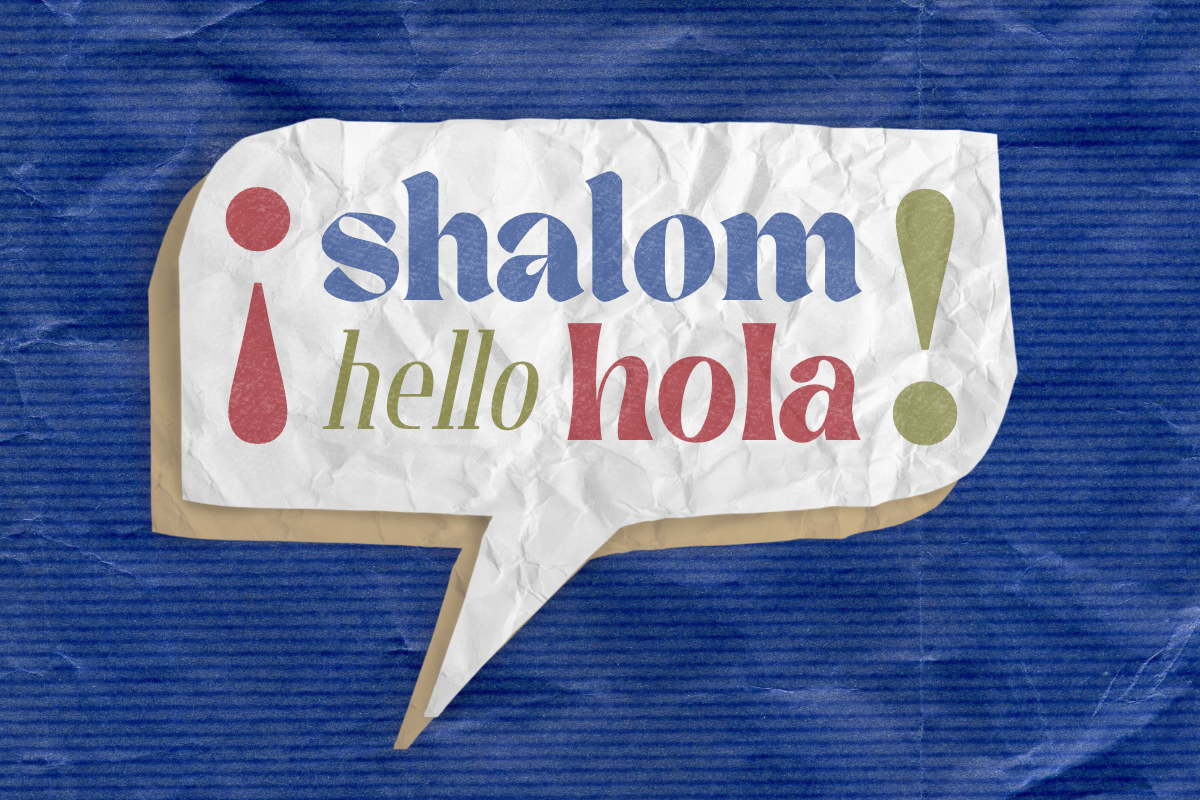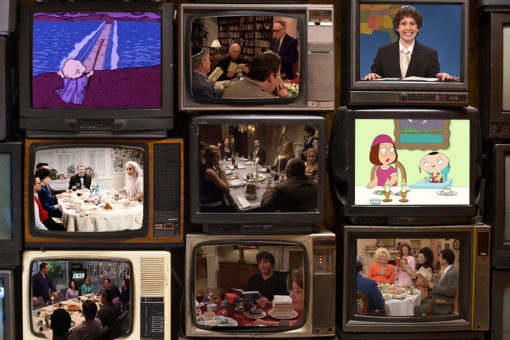I never thought that I could feel like a stranger in a synagogue — after all, I’d practically been raised in one. Coming from a family that was very involved in the Jewish community wherever they made their home, finding a synagogue that felt right was important to my parents. They knew I would receive the bulk of my Jewish education at a synagogue; they hoped I would make lifelong Jewish friends, develop my own interests in Judaism, enjoy attending services and feel part of a community in an ever-growing diaspora.
For a long time I did feel this way and do all of those things: My synagogue was a home away from home where I got to break bread with different members of my community and give back in ways that felt meaningful to me. Synagogue was a place where I didn’t have to feel different, where I was not constantly reminded of the Christian hegemony that I lived under — where being Jewish was normal. Where I was normal, never made to feel like an outsider.
My sophomore year of high school, this changed. As I began to examine the tip of the iceberg that is my identity, I noticed that others were doing the same. They stared at my ethnically ambiguous face, trying to make sense of my large nose, almond-shaped eyes and tinted skin, their brains working overtime to remember the geography they learned in eighth grade, desperate to place my features somewhere on a map. This started to happen at synagogue, too. Congregants whom I’d known since I was a little boy, some of whom had known my father since he was a little boy, began to take a closer look at who I was — and who my mom was.
You see, my father is very clearly an Ashkenazi Jew. There’s no question about it: his lineage, his Eastern European face, his corny jokes inspired by “Seinfeld” all scream Ashkenaz. My mother, however, was born in Panama to a Colombian father and a Brazilian mother. After years of research, we now have reason to believe that her family may have been Crypto-Jews — Jews who were forced to publicly convert to Catholicism (or another religion) but in secret practiced and blended Judaism with the religion they were forced into. Family history aside, my mom converted to Judaism before I was born and is as Jewish as anyone else.
Yet for some reason, many American Jews find her Jewishness mind boggling — especially when they hear us speak Spanish. The first time that I was questioned about my Jewish identity by another Jew, I was backed into a corner by an older congregant and her tennis-ball-equipped walker. Though she’d known me and my family for years, she began her own inquisition, asking me where I was born, if I was born Jewish and commenting that she never would have known I was Latino because I speak English so well— as if it were a compliment. The news of my identity spread like wildfire around my congregation, and multiple congregants asked me for proof that I was actually Jewish. They told me they didn’t believe it was possible for someone who was Latino to also be Jewish, that it sounded like a poorly thought-out joke: “A Jew, a Latino and uh… a uh… oh! A mechanic! Walk into a bar…”
Comments like these, painful ones that I have carried in my soul as I grapple with my multicultural identity, are also plain ignorant.
English is not the de facto language of Judaism. In fact, Judaism does not have a de facto language, as the Talmud states that a Jew may pray in whatever language they understand. Comments like the ones I received ignore Judaism’s rich Spanish and Portuguese history. Though their lives weren’t always easy, Jews have lived on the Iberian peninsula since at least 250 BCE, meaning the Jewish people have been interacting with Spanish and Portuguese for over 2000 years — not to mention the existence of languages like Ladino, also known as Judeo-Espanyol, which can be understood as a Spanish parallel to Yiddish and is recognized as a minority language in Israel, France, Turkey and Bosnia and Herzegovina. The Jews of the Iberian peninsula have made many great contributions to our culture, from culinary pleasures like buñuelos eaten on Hanukkah to Moses de Leon, the Spanish rabbi who first published the Zohar. Jews who converse in Spanish and Portuguese have always been an integral part of our diaspora.
Unfortunately, the Spanish Inquisition of the 15th century, and more specifically the Alhambra Decree of 1492, ultimately led to the death, conversion or expulsion of Jews from the land. Eventually, these Jews who, out of fear, covered the floors of their synagogues in sand so that they could muffle the sounds of their congregating and prayer would see their synagogues taken during a new wave of the Reconquista, with some still operating under Catholic ownership today .
Some Jews were able to escape on boats heading to the so-called “new world.” They would settle in what is now called Latin America, where the oldest synagogue in the Americas, Kahal Zur Israel, was built in Recife, Brazil in 1636, designed to resemble the architecture of the synagogues they were forced to leave in Spain and Portugal. The first synagogue in North America, the Touro synagogue, was (also) founded in 1763 by, you guessed it, Spanish and Portuguese Jews. Latin America saw a boom in Jewish immigration immediately preceding, during and after the Holocaust; there are now estimated to be more than 750,000 Latino Jews around the world. We count among out number two Panamanian heads of state, Max Delvalle Maduro and Eric Arturo Delvalle Cohen-Henriquez, the Argentine voice of the World Cup Andres Cantor, and Afro-Cuban born entertainer Sammy Davis Junior.
I look at these years upon years of history and wonder what it would be like for my mom, my siblings and me to live in a community where Spanish and Portuguese were not ostracized in synagogue. I wonder if my feet somehow miss the grains of sand beneath them while they pray, though they’ve never known that feeling — if the soul of every Latino Jew has been to that synagogue in Recife — if growing up with Spanish and Portuguese alongside Hebrew would have made everything feel just a little more normal.



